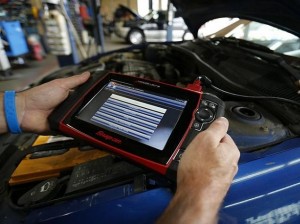Business/Channel/IT Magazine/Magazine Advertisement india/Networking/News/Social Media/Technology News
3 mins read
Copyright 2023, IT Voice Media Pvt. Ltd.
All Rights Reserved
 A group of well-known hackers and security professionals are trying to build better ties with the auto industry in an effort to enlist their help in improving vehicle security, one of the hottest areas of cyber research.
A group of well-known hackers and security professionals are trying to build better ties with the auto industry in an effort to enlist their help in improving vehicle security, one of the hottest areas of cyber research.